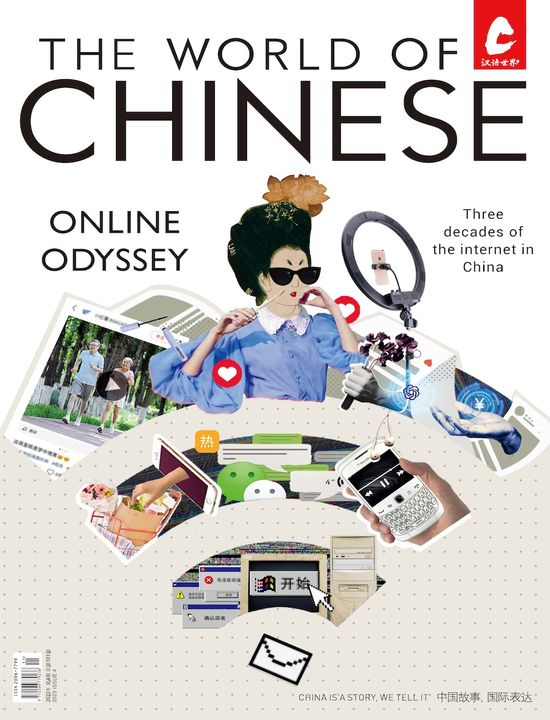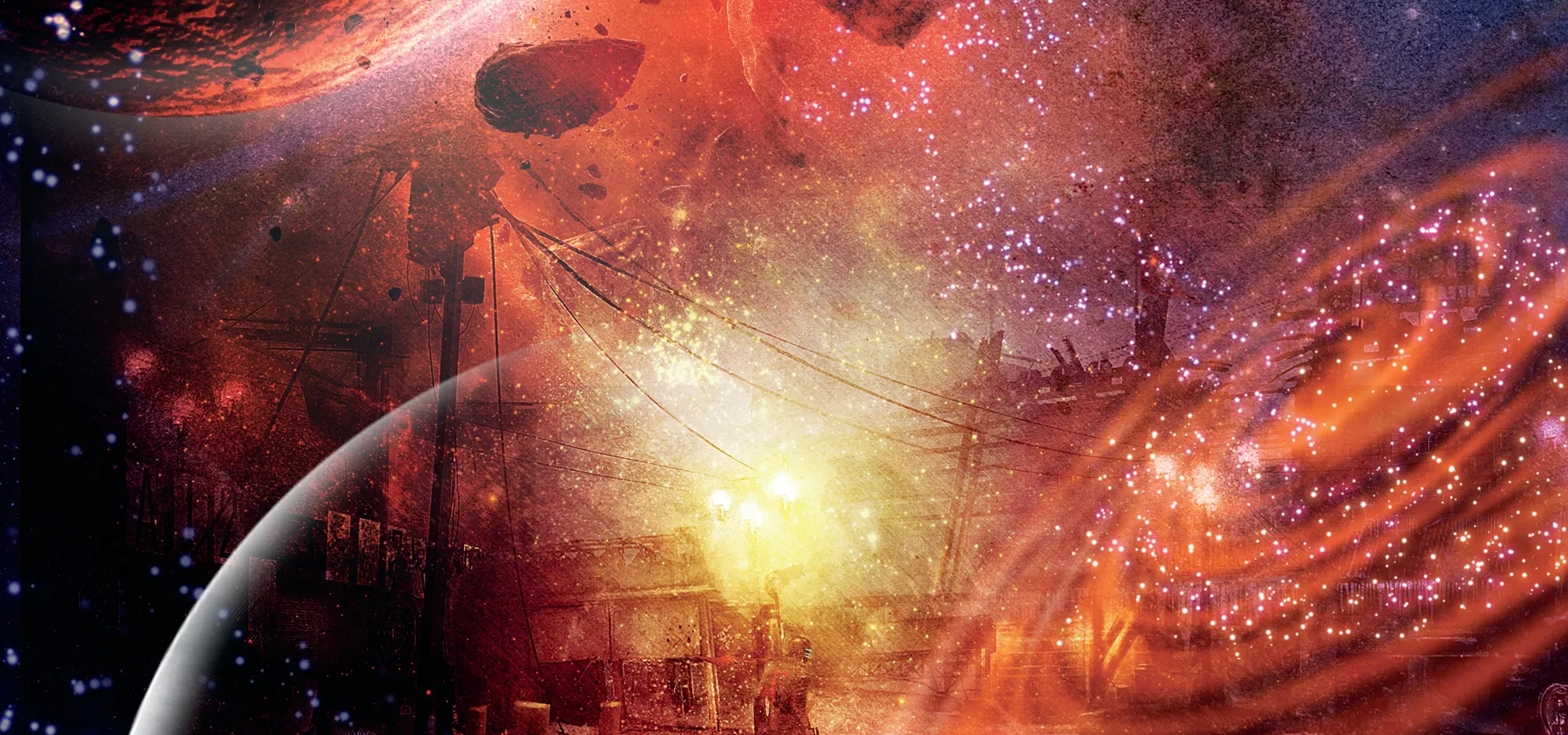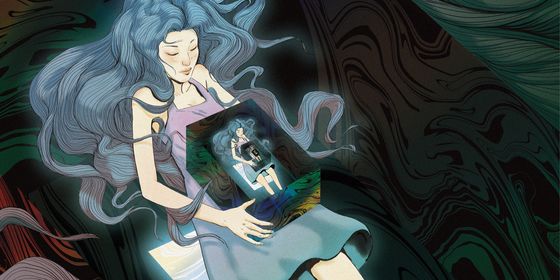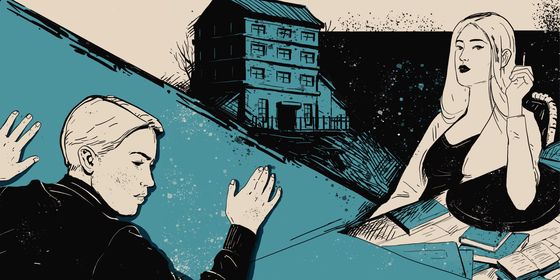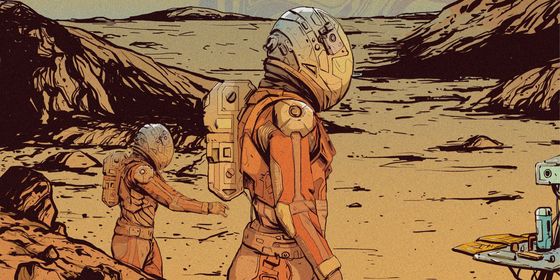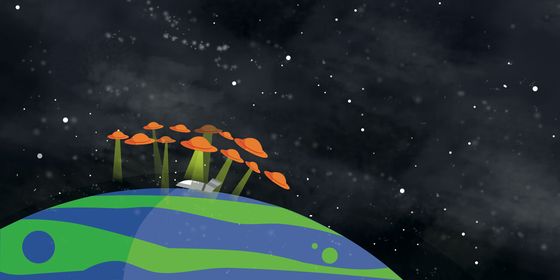Death’s End transforms physics into a nightmare hellscape of horror and loss. Also, there’s a love story.
SPOILERS AHEAD
For a brief recap of the trilogy, Three-Body Problem asked, “Does humanity deserve its place in the universe?” The second, Dark Forest, asked, “Can humanity earn its chance to survive?” In Death’s End the question is somewhat simpler: “Would you sell your mother to a whorehouse?”
If you need to be told that even a simple review of the third in the Three-Body trilogy has spoilers, then you clearly don’t know Liu Cixin. Put simply, the man has never seen a well-manicured, rational plot that he didn’t want to kick down a flight of stairs, kind of like a George R.R. Martin for planets. So, if you’ve read this far into the review without having read the Hugo Award-winning Three-Body Problem and Dark Forest, you are a base knave, a failed Wallfacer, and a prick-eared cur of Trisolaris.
Translated by Ken Liu, readers can’t just jump in the deep end of Death’s End. You’ll need to know about Trisolaris politics, Dark Forest theory, and sophons to understand even a whiff of this novel. Return readers are warned, however, not to expect any fairy tale endings—though this installment does contain actual fairy tales (it’s complicated).
Death’s End builds on the Deterrence Era established by Dark Forest. For those hoping this work will finally concentrate on the unbelievably powerful, technologically superior, psychologically advanced horde of brutal alien refugees barreling toward the Earth at one percent of light speed, forget about it. Humanity has bigger problems.
No philosophical meandering, no wishy-washy terrorist groups, no escapism—this time humankind learns or it burns. It’s a hard slog through murky waters, and readers won’t take long to learn that this novel isn’t about narrative tricks. It’s about decisions that hurt.
The character in the middle of this maelstrom of bad choices is Cheng Xin who comes out of college at the end of the Crisis Era, during which humanity puts all of its resources into staving off the Trisolaran invasion of Earth. She, a low-level analyst in an important military project, quickly rises through the ranks of the international team of egg-heads due to her practical mind and ownership of a star (it’s complicated).
Death’s End is the only book in the trilogy to feature a female lead, and her sex—or, rather, the perception of her sex as a delicate symbol of morality and compromise—plays a major part in the decisions that shape the novel. She’s hardworking, kind, thoughtful, and considerate, but hardly one of Liu’s stronger characters. Perhaps she only makes sense when considering her foil, Thomas Wade, a hateful, bellicose, headstrong, manipulative monster of a man.
The technology of cryogenics plays an even more important role Death’s End than in Dark Forest, allowing the reader to traverse centuries with the turn of a page. With the Doomsday Battle over and Dark Forest theory as an effective deterrent, humanity seems to turn back in on itself, concerned with its own internal politics, eschewing the brutalities of life in the universe, obsessed not with the stars but with the Trisolarians. This inward gaze makes humanity weak—though perhaps “delicate” is a better word.
After centuries of one-sided warfare, scheming, and suicidal military campaigns, humankind is getting back to the business of equality and gentility, and what could be wrong with that? Well, in a universe ruled by Natural Selection, everything is wrong with that. Complacency is a strong theme in Liu’s works. From the Three-Body trilogy to his short works, whenever Liu Cixin sees a fictional society sitting on its laurels, you can be sure he is going to step on its neck. Death’s End is no different.
Cheng Xin rises in the world in no small part because of her middle-of-the-road status as a Crisis Era woman. In the Deterrence Era, masculinity exists only in the cryogenically revived men from centuries past. This new delicate society—without going into the specifics of Dark Forest theory—need someone tough enough to do what’s necessary but not go off half-cocked. Cheng Xin was the natural choice: a woman but a woman from an age when men were men (it’s complicated). From then on, the novel takes on the tone of a morality play with Cheng Xin at the epicenter, but the question of ethics or survival is pretty simple. Again, “Would you sell your mother to a whorehouse?”
